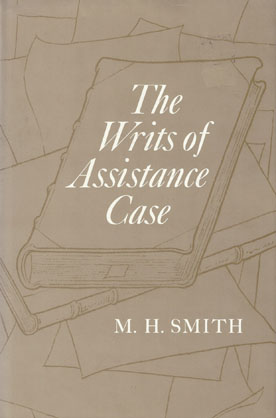
Out of Print
Then and there the child Independence was born," John Adams recalled the Boston courtroom debate on writs of assistance he had attended in February 1761. James Otis' challenge to this blanket authorization of invasion of private property by customs officers pursuing smuggled merchandise anticipated by years the Fourth Amendment ban on general search warrants.
Yet, although unfailingly mentioned in histories of the American Revolution, the writs of assistance case has never before received book length treatment. Mr. Smith has broken much new ground: He uncovers the juridical origins of the writ, and elucidates the basics of customs law for enforcing the acts of trade. A chapter on the Boston vice-admiralty court projects how customs law enforcement, almost non-existent in neighboring colonies, in Massachusetts attained the robustness and vigor that warranted so sophisticated a technique as a writ of assistance search.
The origins of the court case are illuminated by new direct evidence and by commentary on related controversies-economic, political, legal, personal - all erupting simultaneously. The core of the book is, naturally, the courtroom arguments themselves and the development of the case. Links are traced with the 1767 Townshend legislation for writ of assistance search in all colonies and to the intercolonial opposition that balked it. More important, the case is viewed as elemental in the extraordinarily turbulent complex of events in Massachusetts in 1760-61.
New perspectives are shown both on the writs case itself and on its tangentials: Otis' attitude toward parliamentary authority, for example, his political emergence, and the fateful appointment of Thomas Hutchinson as chief justice. Enlivening this study is an assortment of virtual unknowns-one of them a spectacular oddity meriting a chapter all to himself-without whom the sulfurous mix of Massachusetts 1760-61 might not have exploded as it did, so heavily charged with historic consequence.